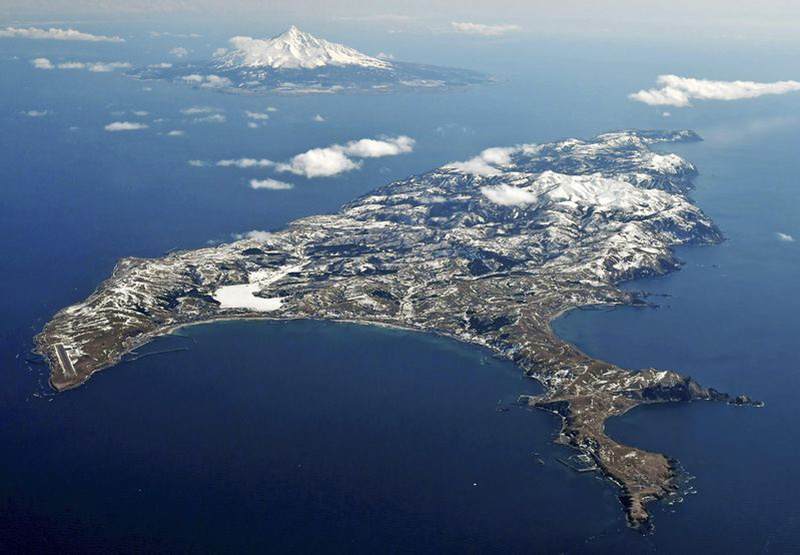
Rebun Island in Hokkaido
12:28 JST, January 10, 2022
The government has decided to strengthen its support for the promotion of tourism in areas designated as specific inhabited remote border islands, with a view to preserving territorial waters as well.
The economies of remote islands in particular have been hit hard by the decline in tourism due to the spread of the novel coronavirus. The initiative also aims to prevent the islands from losing population and becoming uninhabitable, which will help preserve Japan’s territorial waters.
The program will be launched as early as the end of March.
The government plans to subsidize 55% of a project cost to local governments for initiatives utilizing the unique tourism resources of remote islands, such as rich nature, history and fresh marine products.
For example, the government envisions tours that include a meal coupon for local seafood and a transportation ticket, and the development of new specialty foods.
The government also plans to support the training of tour guides and the creation of brochures.
Based on the special measures law for preserving inhabited remote island areas that came into force in 2016, the government has been promoting measures to maintain social and economic activities of remote border islands as part of efforts to prevent them from becoming uninhabited.
The government is concerned that if the islands become uninhabited, it will become difficult to use them as a base of operations for security in the surrounding waters — which could hinder the preservation of territorial waters.
The government has designated 71 specific inhibited remote border islands in 29 municipalities of Tokyo and seven prefectures — including Rebun Island in Hokkaido, Sado Island in Niigata Prefecture and Tsushima island in Nagasaki Prefecture — under the special measures law. The population of each island varies from about 50,000 to a few.
Tourism is a major earner on many islands, and its decline amid the coronavirus crisis has been deeper than the national average.
According to the Japan Tourism Agency, the number of travelers who stayed on remote islands declined about 75% in April-June 2021 from the same period in 2019. The number of travelers nationwide declined about 58% in the same period.
The sharp decline is believed to have been caused by limits on transportation to the islands and the reluctance of residents to accept visitors in fear of infection with the novel coronavirus.
The government is concerned that if tourism continues to be sluggish, more people will leave the islands, which could cause a further decline in the population.
Top Articles in Politics
-

Japan PM Takaichi’s Cabinet Resigns en Masse
-

Sanae Takaichi Elected Prime Minister of Japan; Keeps All Cabinet Appointees from Previous Term
-

Japan’s Govt to Submit Road Map for Growth Strategy in March, PM Takaichi to Announce in Upcoming Policy Speech
-

LDP Wins Historic Landslide Victory
-

LDP Wins Landslide Victory, Secures Single-party Majority; Ruling Coalition with JIP Poised to Secure Over 300 seats (UPDATE 1)
JN ACCESS RANKING
-

Japan PM Takaichi’s Cabinet Resigns en Masse
-

Japan Institute to Use Domestic Commercial Optical Lattice Clock to Set Japan Standard Time
-

Israeli Ambassador to Japan Speaks about Japan’s Role in the Reconstruction of Gaza
-

Man Infected with Measles Reportedly Dined at Restaurant in Tokyo Station
-

Videos Plagiarized, Reposted with False Subtitles Claiming ‘Ryukyu Belongs to China’; Anti-China False Information Also Posted in Japan





















